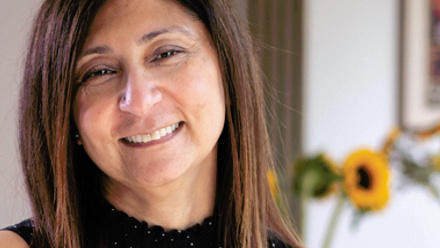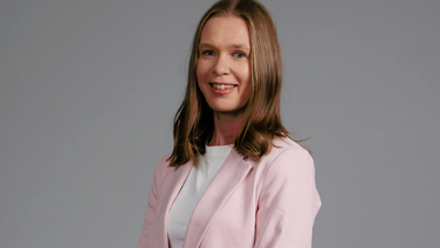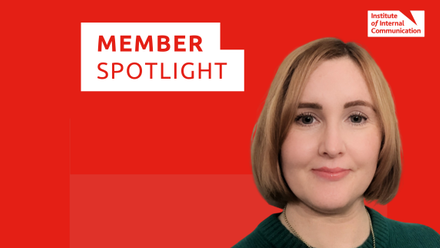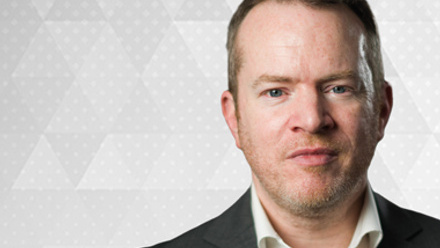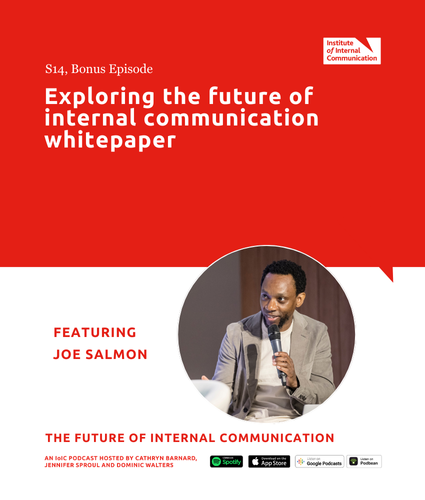Getting to know our Fellows: Q&A with Yvonne O’Hara
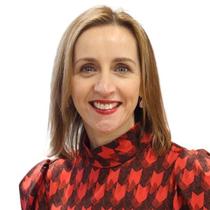
How did you end up working in internal comms?
As a teenager I thought my career path was mapped out. Study law, graduate, become a solicitor in criminal law. Job done. After graduating from the University of Limerick with my law degree, I realised law wouldn’t be ideal for my creativity and perpetual curiosity. A magazine editor suggested communications would be a great match to my skills and personality and I moved into public relations.
My career began in PR in Dublin and when an opportunity to work for University College London on a year-long contract popped up in London, I decided to make the move across the Irish sea into a corporate communications role there. This saw me working across external and internal communications, sourcing stories about the incredible work of UCL’s diverse mix of academia.
At the time, the corporate communications director was undertaking a refresh of the UCL brand. I found myself captivated by the idea of articulating what a brand is and how to build a narrative with powerful storytelling to engage audiences. I could see how powerful an emotional connection with a strong brand could be for inspiring existing colleagues and attracting new ones.
That’s when I fell in love with internal communications and understood in that moment that it was much more than storytelling and content – it’s about inspiring people to be at their best at work and helping them see the connection between their role and the strategy of the organisation they work for.
Why did you choose to pursue a Fellowship?
When I started my career in internal communications, I was hungry for direction and ideas about excellence in this field. This was hard to come by, other than learning on-the-job. I want to give back to the profession I love and help others by sharing what I’ve learned from my successes and failures.
I’m an advocate for gender equity and believe in the mantra “You can’t be what you can’t see”. So, if I can inspire women to achieve more through mentorship and support, then I believe the internal communications profession will be better for their contribution and creativity. I like the ethos of the Institute of Internal Communication’s #IChoseIC campaign and I want to do all I can to inspire others to pursue a career in our industry.
What has your career in internal comms taught you?
When I first started my career in internal communications, I was obsessed with skills. I read, studied and learned everything I could. I had a coach and a mentor to help me embrace a broader perspective.
I learned it’s important to not take an “us versus them” approach. Collaboration with other professionals from other disciplines (IT, HR, finance, risk, strategy, etc.) is necessary to create communications that truly engage. This is where you can truly add value and be known as the person who brings everyone together to innovate and communicate with impact.
What advice would you give to internal communicators who are at the beginning of their career?
- Invest in your skills. Read, learn and open yourself to the excellence in communications that is out there. If you don’t have a communications qualification, make it your priority. It will improve your delivery and confidence as a communicator. Studying for a communications qualification will also open you up to a wider network, which will help you gain new ideas, fresh perspectives and sector insights that will deepen your professional practice.
- Build a communications community. Join LinkedIn and follow practitioners who interest and inspire you. Don’t just limit yourself to communications practitioners: follow interesting CEOs and leaders – you might end up working with them one day and it will help sharpen your commercial skills.
- Don’t think of yourself as “just a communicator”. Understand your business in great depth, find out what customers think, deepen your commercial awareness of your organisation’s strategy and be proactive about how communications can help translate an organisation’s strategy and solve knotty problems. Share what you know about your audiences – customers, stakeholders, investors, shareholders and colleagues. This will help others see problems from different perspectives.
- Enjoy working across boundaries. Soak in what you can learn from other professions and watch how they work. Be a super connector who is known for collaboration. These are the skills that you will need in the future, as workplaces need ways to drive innovation.
- Be inclusive. Challenge your stakeholders and leaders to always think about strategic challenges through the lens of equality, diversity and inclusion. Your role is to be the voice of your colleagues, and the more you understand your organisation’s challenges, frustrations and motivations the better your communications practice will be.
- Be kind. It’s a small world in communications – you never know who you might end up working with.

